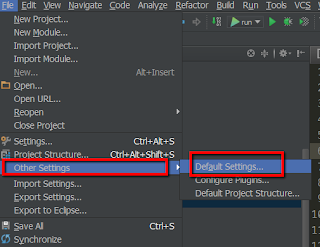By default all maven projects have a version number that you increase upon releases whether it's a minor or major release.
When you are in a scenario in which you continuously deliver application (for example on a staging server) it's probably a good idea to have some unique build identifier so as to know the exact version that is deployed on the server
Luckily the guys over at codehaus have an app plugin just for that .
I'm talking about the buildnumber-maven-plugin
This plugins will generate a build identifier each time you compile your maven project and make this identifier available through a maven variable ${buildNumber}
The plugin can generate build numbers in 3 ways :
- SCM (my personal favorite)
- Sequential build number
- Timestamp
Personally I prefer the SCM approach since it's coupled with your commits, and I will here I will be showing how to do that
First you will have to configure the maven scm plugin with your details, otherwise you'll end up with error messages like :
Failed to execute goal org.codehaus.mojo:buildnumber-maven-plugin:1.2:create (default) on project simple-webapp: Execution default of goal org.codehaus.mojo:buildnumber-maven-plugin:1.2:create failed: The scm url cannot be null. -> [Help 1]
com.ufasoli.tutorial
swagger-spring-mvc
1.0-SNAPSHOT
scm:git:https://github.com/ufasoli/spring-mvc-swagger-tutorial.git
https://github.com/ufasoli/spring-mvc-swagger-tutorial.git
...
Here I'm using a github repository as SCM
Once your SCM details are set you can configure the build number plugin :
...
org.codehaus.mojo
buildnumber-maven-plugin
1.2
validate
create
false
false
5
Here I'm configuring the plugin with 3 worth noting options
- doCheck : Check for locally modified files. If true build will fail if local modifications have not been commited
- doUpdate : Update the local copy of your repo. If true the plugin will update your local files with the remote modifications before building
- shortRevisionLength : shortens the git revision to the number of characters specified in the tag (5 in our case)
Once everything is configured you will be able to access the ${buildNumber} variable in your pom (even though your IDE might complain that the variable cannot be resolved don't worry it will be there when you package your project)
${project.artifactId}${project.version}_${buildNumber}


